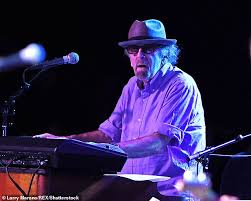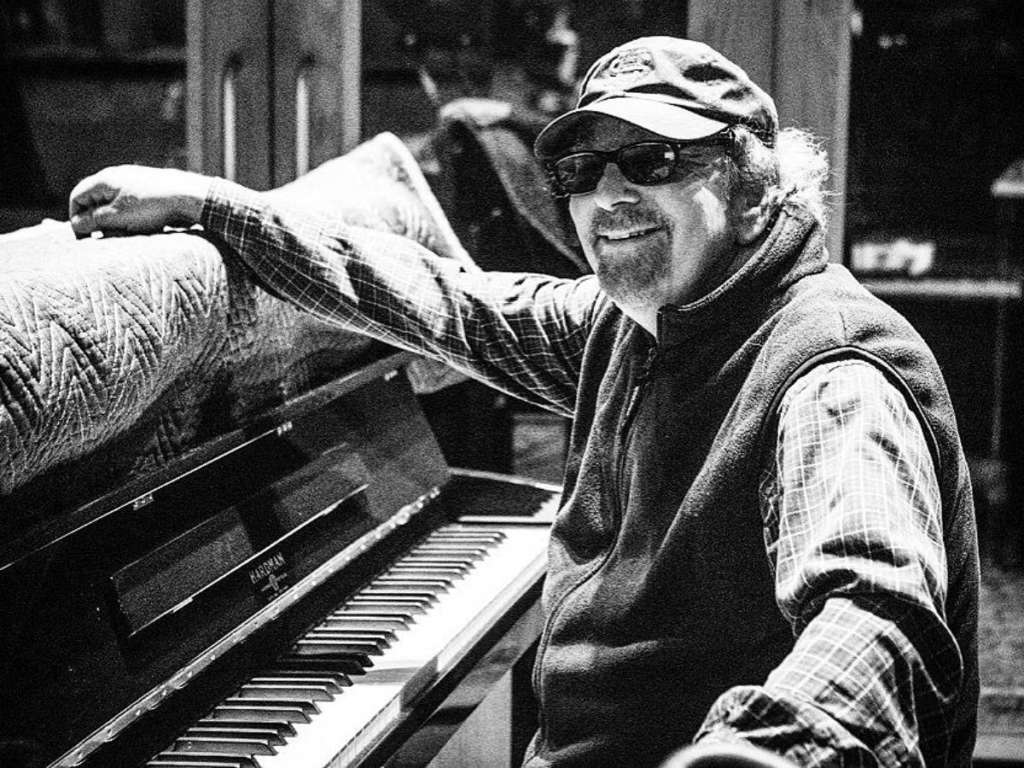
Barry Goldberg was an American blues and rock keyboardist, songwriter, and record producer whose prolific career spanned over six decades. Renowned for his contributions to blues, rock, and soul music, Goldberg collaborated with legendary artists, co-produced iconic albums, and left an indelible mark on the music industry.
Early Life and Musical Beginnings
Barry Goldberg was born in Chicago, Illinois, on December 25, 1942. Growing up in the culturally rich environment of Chicago’s South Side, Goldberg was exposed to the burgeoning blues scene that flourished in the city during the 1950s. As a teenager, he became a regular visitor to clubs where artists like Muddy Waters, Howlin’ Wolf, and Buddy Guy performed. Inspired by the power and raw emotion of the blues, Goldberg began playing piano, immersing himself in the sounds of traditional blues and R&B.
By his late teens, Goldberg was performing in local bands and gaining recognition as a talented keyboardist. His passion for the genre earned him opportunities to jam with notable blues musicians, and he soon became a sought-after figure in Chicago’s vibrant music scene.
Rise to Prominence: Collaborations and Woodstock
In the early 1960s, Barry Goldberg’s reputation as a versatile keyboardist led him to collaborate with some of the most influential artists of the era. One of his earliest major gigs was performing alongside Bob Dylan at the Newport Folk Festival in 1965, a pivotal moment in Dylan’s career as he famously “went electric.” Goldberg’s Hammond organ playing added depth and soul to Dylan’s sound, cementing his place as a key figure in the evolving landscape of rock and blues.
Goldberg also co-founded The Electric Flag in 1967, a band that fused rock, blues, and soul with a horn section. The group, featuring guitarist Mike Bloomfield and drummer Buddy Miles, was a groundbreaking project that showcased Goldberg’s ability to innovate within the blues-rock genre. The Electric Flag performed at the Monterey Pop Festival in 1967 and released their debut album, A Long Time Comin’, in 1968. Although the band was short-lived, it left a lasting impression on the music world.
In 1969, Goldberg played at Woodstock as part of the Keef Hartley Band. His performance at the legendary festival highlighted his versatility and reinforced his reputation as a sought-after musician.
Songwriting and Producing Success
Beyond his prowess as a keyboardist, Barry Goldberg was a prolific songwriter and producer. He co-wrote “I’ve Got to Use My Imagination,” a hit for Gladys Knight & the Pips, and contributed to songs recorded by artists like Rod Stewart and Joe Cocker. Goldberg’s songwriting combined heartfelt lyrics with sophisticated melodies, making his compositions timeless staples of the rock and blues repertoire.
As a producer, Goldberg worked with a wide range of artists, co-producing albums by Percy Sledge, Charlie Musselwhite, James Cotton, and The Textones. His production style emphasized authenticity and emotional resonance, qualities that resonated with both artists and audiences.
One of Goldberg’s most notable achievements as a producer was his work on Bob Dylan’s version of Curtis Mayfield’s “People Get Ready.” The collaboration blended Dylan’s folk sensibilities with Goldberg’s blues expertise, resulting in a powerful rendition of the classic song.
Legacy and Contributions to Blues and Rock
Barry Goldberg‘s influence extended beyond his collaborations and productions. As a keyboardist, his distinctive style combined the emotional depth of the blues with the energy of rock and the sophistication of jazz. His use of the Hammond B3 organ became a signature element of his sound, adding warmth and texture to countless recordings.
Throughout his career, Goldberg remained deeply connected to the blues. He worked with legends like B.B. King, Etta James, and Buddy Guy, bridging the gap between traditional blues and contemporary rock. His contributions helped bring the blues to a wider audience, ensuring its continued relevance in the modern era.
Goldberg also served as a mentor to younger musicians, sharing his knowledge and passion for the genre. His dedication to preserving the blues tradition while pushing its boundaries inspired a new generation of artists to explore the genre.
Later Years and Recognition
In his later years, Barry Goldberg continued to perform, record, and produce music. He frequently appeared at blues festivals and events, delighting audiences with his dynamic performances and heartfelt interpretations of classic songs. Despite the passing of many of his contemporaries, Goldberg remained a vital presence in the music world, collaborating with younger artists and contributing to projects that celebrated the legacy of blues and rock.

Goldberg’s contributions to music were widely recognized. He received numerous awards and accolades, including induction into the Blues Hall of Fame and the Rock and Roll Hall of Fame. His work as a songwriter, producer, and musician was celebrated not only for its artistic excellence but also for its cultural significance.
Personal Life and Death
Barry Goldberg’s personal life was as rich and colorful as his music. Known for his warm personality and quick wit, he forged lasting friendships with many of the artists he worked with. He was married to his longtime partner, Janice, and together they had two children. Family and music were central to Goldberg’s life, and he often spoke of the joy he found in sharing his passion with loved ones.
Barry Goldberg died on January 22, 2025, at the age of 82. His death marked the end of an era for the blues and rock community, but his legacy lives on through the countless recordings, performances, and collaborations that defined his career.
A Lasting Legacy
Barry Goldberg’s contributions to music are immeasurable. As a keyboardist, songwriter, and producer, he played a pivotal role in shaping the sound of blues and rock, leaving an enduring impact on the genre. His work with legends like Bob Dylan, Percy Sledge, and The Electric Flag, along with his efforts to preserve and evolve the blues tradition, ensured his place in music history.
Barry Goldberg’s influence can be heard in the work of countless artists who followed in his footsteps, and his recordings continue to inspire listeners around the world. His life and career serve as a testament to the power of music to bridge cultures, generations, and emotions, and his legacy will be celebrated for years to come.
Check out Barry Goldberg on Amazon by clicking here.
If you found this interesting please share it with your friends and family, and check out some of our other articles on Musicians who Died in 2025.
.

